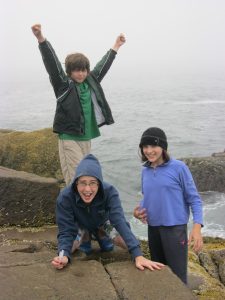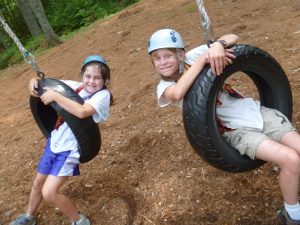Young Explorers Youth Adventure Camps
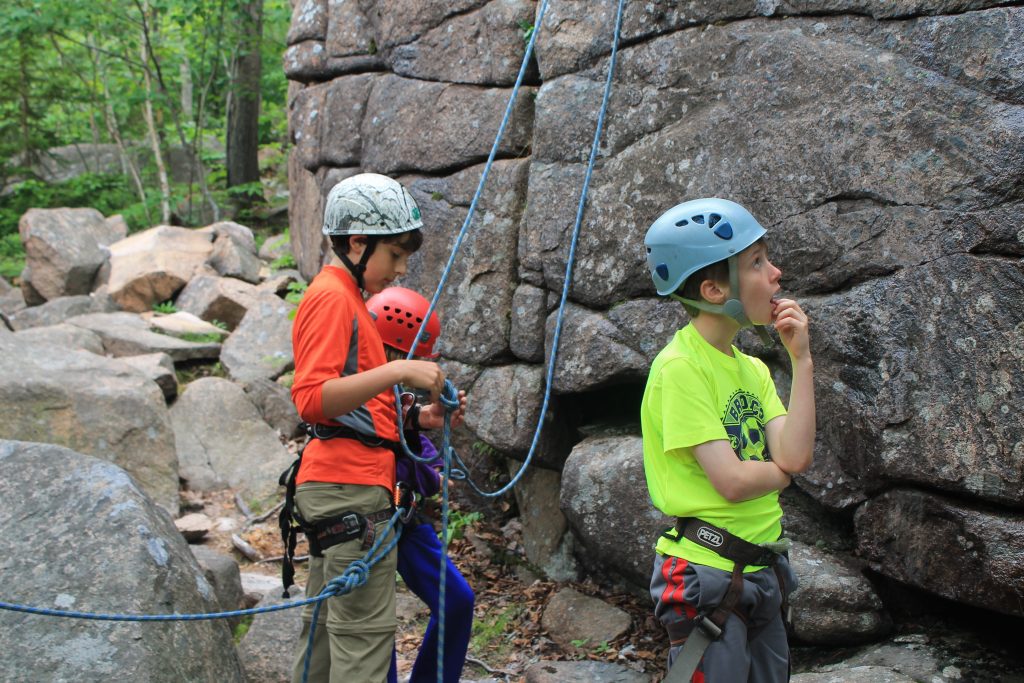
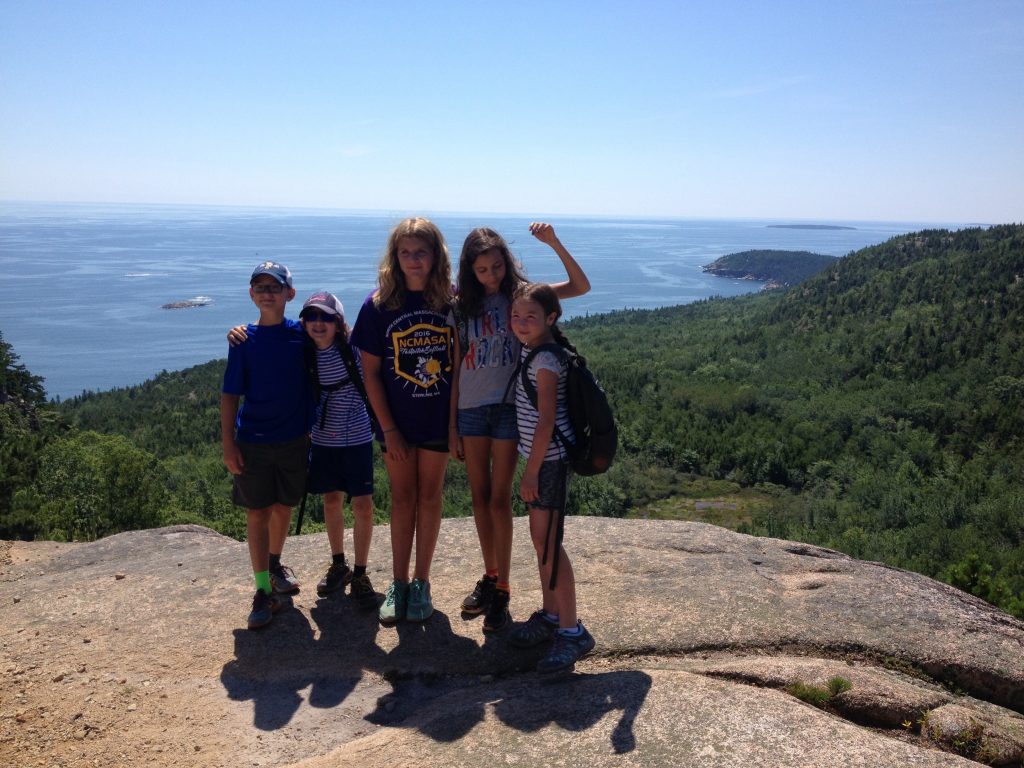


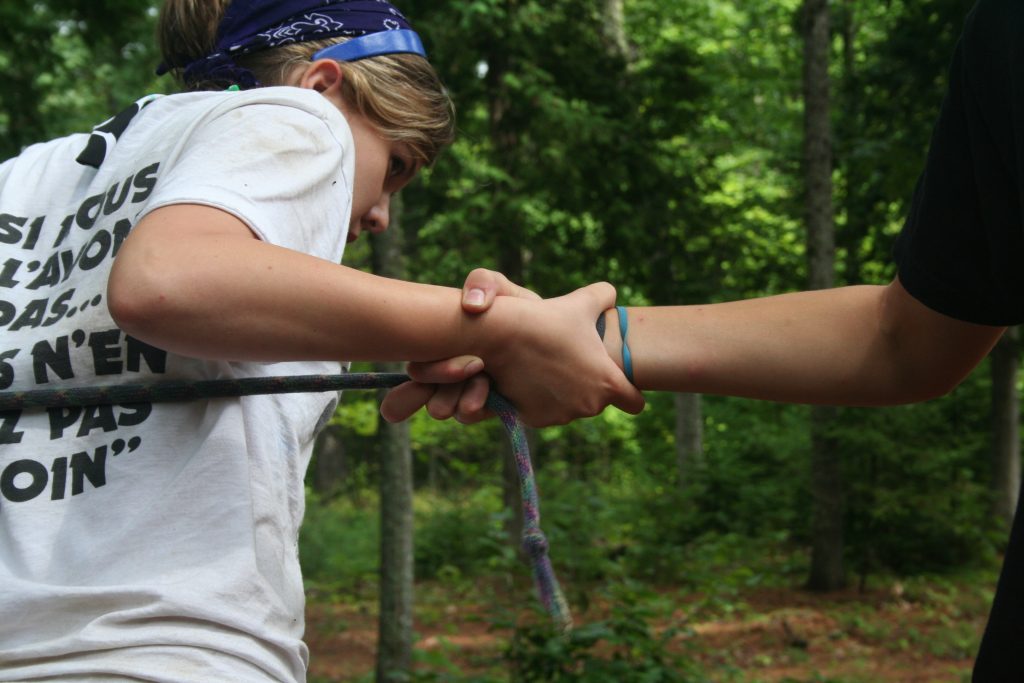
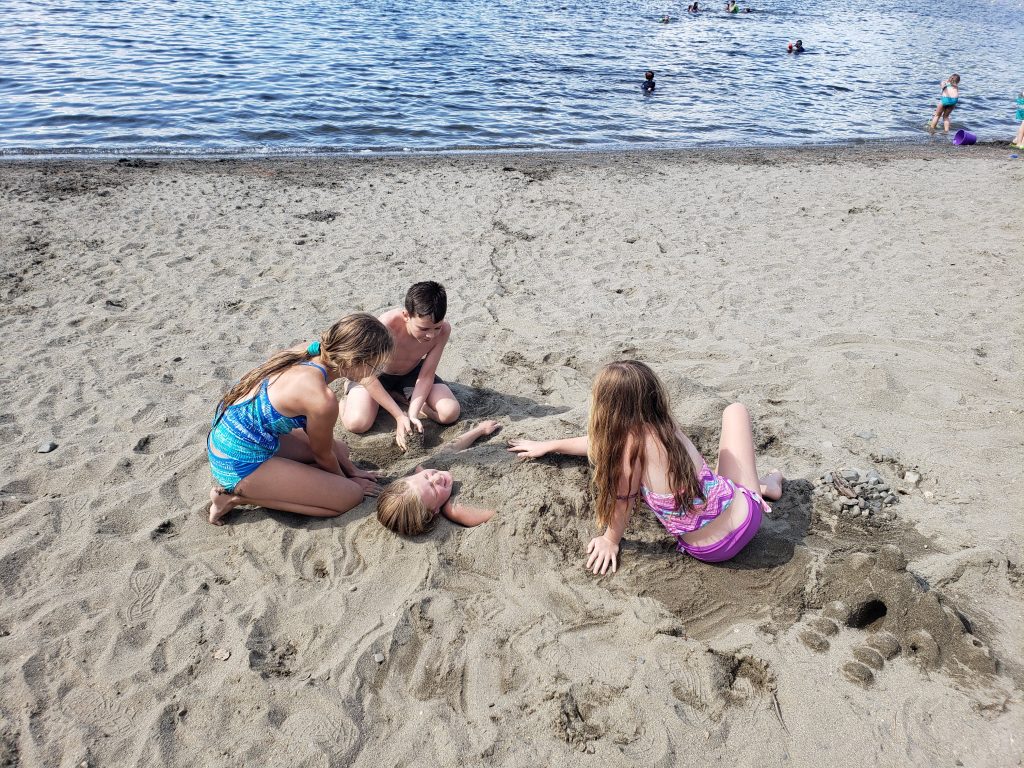

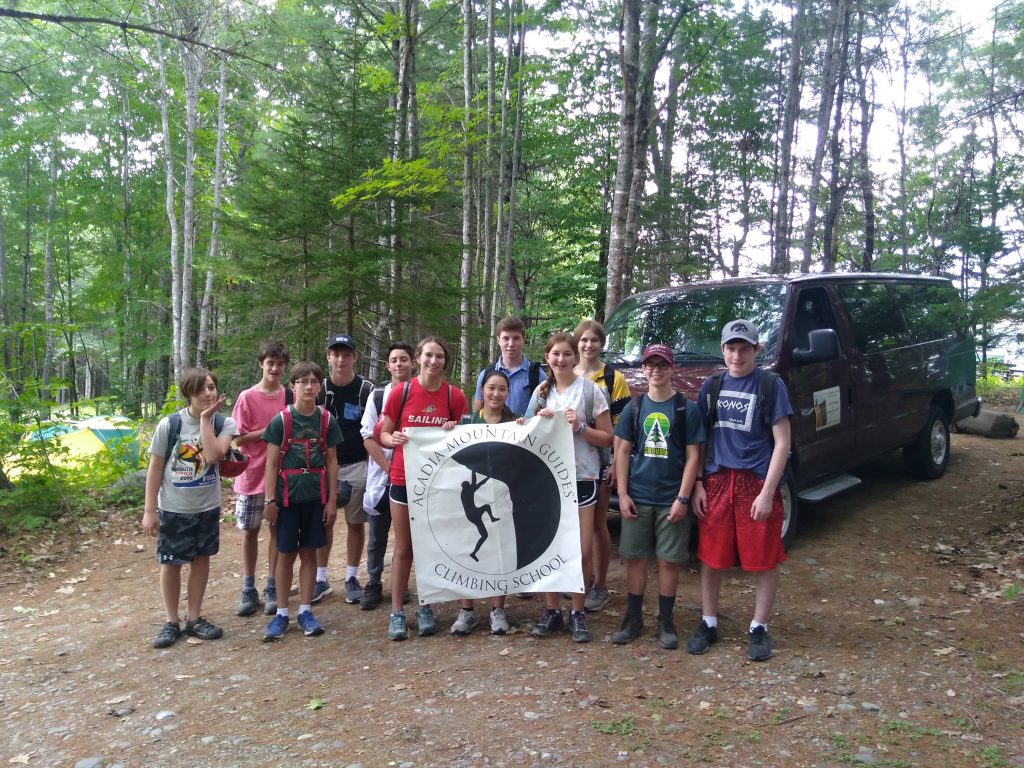
Join Us For Some
Fun In The Sun!
Ages 9 – 13, 4th – 7th grades.
May be done as day or overnight camp. Embark on a week of adventure and exploration, savoring the best of Maine through immersive outdoor experiences! Our objective is to impart fundamental camping, hiking, climbing, canoeing, and other outdoor skills, empowering your family to lead outdoor adventures. Throughout these five days, we’ll foster friendships and independence amidst the splendid Maine wilderness.
The uniqueness of each camp lies in its location. One day may entail hiking Acadia Mountain with breathtaking views of Somes Sound, while another offers the thrill of canoeing in the Kennebec region, seeking out majestic bald eagles!
| 2025 Young Explorers Adventure Camps | |||
| Date | Location | Day | Overnight |
| June 30-July 4 | Acadia | $425.00 $525.00 with shuttle | $850.00 |
| July 21 – 25 | Acadia | $425.00 $525.00 with shuttle | $850.00 |
| August 11 – 15 | Acadia | $425.00 $525.00 with shuttle | $850.00 |
Explorers Overnight Camp Drop Off / Pick Up
Any of the below locations & times on first and last day.
Bangor
Drop-Off: 7:30 am • Pick-Up: 6:00 pm
Alpenglow Adventure Sports: 753 Stillwater Ave, Bangor, ME
Ellsworth
Drop-Off: 8:45 am • Pick-Up: 4:45 pm
Ellsworth McDonalds: 259 High St, Ellsworth, ME
Bar Harbor
Drop-Off: 9:30 am • Pick-Up: 4:00 pm
Acadia Mountain Guides Office: 228 Main St, Bar Harbor, ME
Explorers Day Camp
Bar Harbor
Drop-Off: 9:30 am • Pick-Up: 4:00 pm
Acadia Mountain Guides Office: 228 Main St, Bar Harbor, ME
Explorers Day Camp Shuttle
Shuttle from Bangor *
Drop-Off: 7:30 am • Pick-Up: 6:00 pm
Alpenglow Adventure Sports: 753 Stillwater Ave, Bangor, ME
Shuttle from Ellsworth *
Drop-Off: 8:45 am • Pick-Up: 4:45 pm
Ellsworth McDonalds: 259 High St, Ellsworth, ME
Five days. Campers should be able to hike 2 – 3 miles each day with a 10 – 15 lb pack.
- Five days of exploration and adventure in the given location
- Four nights of camp activities and camping in tents on overnight trips
- Professionally guided by AMG trained trip leaders and certified Maine Trip leaders.
- Camping at established campground with; bathrooms, coin operated showers, and pool
- Trailheads within short 10-15-minute drive from our camping area
- Ratio: maximum of 12 campers / guide
- Meals are provided for overnight camps
- Breakfast, Lunch, Snack, and Dinner
- Meals are not provided for day campers.
- Personal hygiene products
- Personal eating utensils and container
- Quarters for the showers
- Personal Clothing
- Instructor / Guide Gratuities
Specific Info
General Info
The camp is available at various times during the summer, and we make a deliberate effort to ensure that each session differs significantly from the others, allowing participants to attend multiple camps with minimal repetition. Each camp features a diverse range of activities scheduled throughout the week. Sample itineraries for the Acadia and Moosehead Outdoor Camps are provided below.
Below are sample itineraries for the Acadia and Moosehead Outdoor Adventure Camps.
Acadia Camp #1 Day or Overnight
- Before hitting the trail, warm up with activities to get the group knowing each other and get energized then hike to a mountain peak in Acadia National Park
- After lunch on the summit lunch learn how to read a map showing the landscape and play some fun hide and seek type games to help learn some of local trees and plants
- Meet a real life park ranger and start your journey to becoming a Jr. Ranger
- Cruise over to Sand Beach for a quick dip in the Atlantic Ocean
- Learn to hang a bear bag
- It’s basic first aid day. Stop bleeding, open an airway, and build a splint are just a few valuable things to learn. Meet a paramedic and learn what they do
- Spend the morning canoeing on Jordan Pond followed by an afternoon hike up a mountain summit and a short, easy rock climb to wet your climbing appetite
- Every wondered where all the rocks come from to make bridges and wall. Visit a quarry and the Granite Museum to try your hand splitting and shaping a rock the old fashioned way
- Maybe a short hike to a fire tower and then wrap up the at the beach swimming or building castles in the sand
- Try your hand with basic knots and enough rope skills to rappel down a rope into a sea cave where you can explore for starfish, sea urchins and other sea life
- Finish out the day rock climbing or rock scrambling over the sea as you wish – something for everyone
- Finish the day with our signature Tyrolean rope bridge traverse
Moosehead and Katahdin Region Overnight Camp
- Get the maps out and head to Greenville.
- Before hitting the trail, warm up with activities to get the group knowing each other and energized.
- Set up camp on the shores of a northern Maine lake and practice canoe skills and how to right an overturned canoe in the water.
- Learn to set up your tents and to build a campfire
- Get ready to paddle back to camp on the moving water of the West Outlet. You may get wet but you’ll probably see a bald eagle or two and maybe even a moose.
- Back at camp learn about the lives of Maine mammals by looking at real skulls, pelts and track molds of native animals (obtained from ME IF&W from road killed animals). Find a track a make your own plaster track mold.
- Stories around the campfire
- Get aboard the ferry for a full day on Mt. Kineo. You will have a chance to hike up the Indian Trail and climb the fire tower to see all around Moosehead Lake.
- If time allows (gotta catch the ferry back), sample some rock climbs on Mt. Kineo.
- Learn about weather tonight along with lightning safety.
- After learning how to cross a river safely as a group, we’ll hike to the “Grand Canyon of the East” Gulf Hagus where we can hang out in water carved river pools before heading back out a different way.
- Tonight you all cook dinner. Oh gosh, good thing everyone is going home tomorrow. We are sure it will be tasty.
- Road trip to Debsconeag Wilderness to visit the ice caves.
- On the hike out, get to know some of the plants in fun way.
- Head home with a week of memories, learning and laughs.
Acadia Camp #2 Overnight Camp
Day 1:
- Before hitting the trail, warm up with activities to get the group knowing each other and to get energized then will do a bit of rock climbing followed by a lake swim.
- During the week we will try to schedule activities around the Park Ranger programs so everyone can be an official Jr. Ranger.
- Explore a marsh and pond. Using a net, find tiny little creatures that call the marsh their home and explore the life and home of the industrious beaver.
- Get ready to mountaineer. We will scramble with ropes up our secret way up the Beehive to surprise all the those who took the trail.
- Cruise over to Sand Beach or Echo Lake for a quick dip in the Atlantic Ocean.
- Follow your map Hike up Acadia Mountain then see if you can follow your compass down to find a secret treasure.
- Play in or on a canoe, kayak or paddle board then paddle to the beach on Echo Lake for and end of day swim.
- Play a round of mini-golf at Pirates Cove.
- Learn about the lobster and pull a trap to see what we find
- Maybe a short hike to a fire tower and then wrap up the at the beach swimming or building castles in the sand
- Go see the awesome Maine Lumberjack Show cut and split wood.
Day 5:
- Try your hand with basic knots and enough rope skills to rappel down a rope into a sea cave where you can explore for starfish, sea urchins and other sea
life - Finish out the day rock climbing or rock scrambling over the sea as you wish – something for everyone
- Finish the day with our signature Tyrolean rope bridge traverse
The core related objectives for Young Explorers Adventure Camp are:
- To have fun learning in an outdoor setting and to meet new friends with similar interests
- To develop safe habits related to outdoor activities
- To learn and practice principles of Leave No Trace
- To practice general camping skills including tent set up and fire building
- To work with other in a coopertive and supportive culture that fosters personal responsibility and teamwork.
- To learn about common native plants and animals and other natural history subjects such as astronomy, geology, marine and pond life.
- To learn various specific skill sets tailored to activities such as; rock climbing, canoeing, kayaking, hiking, etc.
Day Campers: It’s best to have a good breakfast at home before you start the day. Bring a healthy lunch comprised of easy to eat finger food along with your favorite drinks.
Lodging Information for Overnight Campers:
- Campers will sleep in tents separated by gender.
- We stay in public campgrounds such as Bar Harbor Campground and Park’s Pond Campground. Campgrounds have bath and shower facilities and some have swimming areas.
Food Information for Overnight Campers:
- Breakfasts, lunch, snacks, and dinners will be provided. We will eat well!
- Campers join the leaders in preparing delicious, healthy camp meals.
- Vegetarian options are available as well.
- Sample evening meals include pasta with sauce and salad, vegetable stir fry w/ chicken side, etc.
- Please let us know if you have any food allergies or requests. We will also do our best to accommodate various food requests and preferences.
- Small backpack – approximately 25L – 30L size.
- 2 – 1 quart or liter water bottles with a screw-on lids
- Appropriate footwear for camp activities. Generally, a lightweight hiking shoe is sufficient. Be sure to break in before camp.
- Water shoes with straps. A quick drying shoe that can be used paddling or stream hopping.
- 1 pr quick drying shorts
- 1 pr quick drying pants. zip-off convertible pants to shorts work great
- 1 long sleeved sun shirt or hoodie synthetic or wool blend only
- 1 t-shirt & sport bra as needed.
- Wool blend hiking socks
- A second set of clothes weathers is rainy
- 1 swim suit
- 1 waterproof hooded rain jacket
- 1 waterproof rain pant
- 1 warm synthetic fleece or insulated jacket
- 1 wool or synthetic beanie style warm hat.
- 1 brimmed hat for sun protection (optional)
- 1 mosquito headnet (optional)
- Lunch. A packable lunch with healthy snacks and drinks.
- 2 oz. bottle alcohol based hand sanitizer
- travel size water resistant sunscreen SPF 30 or more, (1-2 oz) per week
- lip balm with sunscreen SPF 15 or more
- insect repellent 1 – 2 oz bottle (we suggest 100% DEET or Picardin product for short term use. No spray cans.
- Tampons and/or sanitary pads if needed
- Quick drying med size camping towel for swimming
- Whistle on a string (not needed if both packs have one on sternum strap)
- 1 bandana.
- Eyeglasses or contacts if needed with a solution.
- Sunglasses if desired
- Camera with protective case if desired
- Note: Cell phones with camera functions are not allowed. The camera MUST be separate from a cell phone.
- Personal cell phones are not allowed while at camp
- 1 unscented durable trash bag large enough to cover pack.
- Climbing shoes, harnesses and helmets are provided to Mountain Monkeys, RocPro I and RockPro II campers although you may bring your own if you have.
- RockPro III and IV campers should have climbing shoes, harness, belay device, 2 HMS locking carabiners and a helmet.
- Paperwork / Personal Info Bag (labeled with camper name)
- This should be a waterproof bag – Ziploc is fine.
- Outside organization Contract Waivers signed by guardians
- Some photos of your friends and family (pets too) to share if desired
- No more than $20 spending money per day for town day or souvenirs
If traveling by air, train or bus to camp
- Printed off airline/bus/train confirmation and ID
- Credit/Debit Card for return if needed for airline baggage fee and unaccompanied minor ticket on return flight if you are unable to pay in advance.
- Camper Cell Phone (with charger). This will be secured in our office during camp.
- Medication Bag (labeled with camper’s name).
- This should be a waterproof bag – Ziploc is fine.
- This includes is any substance a person takes to maintain and/or improve their health including vitamins and supplements.
- Bring enough medication to last the entire time.
- Prescription medication brought must be in original pharmacy containers with labels that show the camper’s name and how the medication should be given.
- We suggest sending a second set of prescription medications as a backup if on overnight camp.
- See medication policies for administration and security of medications while at camp.
- Day Pack – approximately 25L – 30L size. This will be used for day hikes and brought to climbing sites.
- Large Backpack or Duffel. 60 – 70 liter backpack is required if attending a multi-sport camp that includes backpacking. Otherwise a 60 – 70 liter duffel should suffice. Backpack should be internal frame type and be fitted to camper and include hip belt and chest strap.
- Mess Kit:
- a small mesh bag works great for this as things can dry.
- 8 – 12 oz unbreakable travel mug with lid for hot or cold beverages.
- Unbreakable medium-sized plate and bowl. A collapsible set is great but a Tupperware bowl works.
- Durable utensil set made for camping.
- 2 oz. bottle alcohol based hand sanitizer
- Personal Toiletry Kit:
- a small mesh bag works great for this as things can dry.
- toothbrush with travel size toothpaste (1-2 oz) per week.
- comb, brush and hair ties if needed
- travel size water resistant sunscreen SPF 30 or more, (1-2 oz) per week.
- lip balm with sunscreen SPF 15 or more
- insect repellent 1 – 2 oz bottle (we suggest 100% DEET or Picardin product for short term use. No spray cans.
- Tampons and/or sanitary pads if needed
- Quick drying med size camping towel
- Small headlamp with extra set of batteries.
- Whistle on a string (not needed if both packs have one on sternum strap)
- 2 – 1 quart or liter water bottles with a screw-on lids
- 1 bandana.
- Eyeglasses or contacts if needed with a solution.
- 1 small travel-sized notebook and pencil to journal
- Sunglasses
- Camera with protective case, extra batteries, memory cards, or film.
- Note: Cell phones with camera functions are not allowed. The camera MUST be separate from a cell phone. Campers may possess a cell phone to travel to / from camp, however, personal phones will be secured during camp in our office.
- 2 unscented durable trash bags large enough to cover day pack.
- 4 large Ziploc bags for personal garbage and protecting things in case of rain.
- Synthetic sleeping bag rated to at least 40 F (4 C)
- Compression stuff sack for sleeping bag to minimize the size of your sleeping bag.
- Sleeping pad 72” x 24” of closed foam or inflatable
- Camp pillow. A small outdoor camp pillow is allowed, not a regular bed pillow. (optional)
- Appropriate footwear for camp activities. Generally, a lightweight hiking shoe is sufficient. Be sure to break in before camp.
- Water shoes with straps. A quick drying shoe that can be used paddling or stream hopping.
- Shower sandals.
- Wool blend hiking socks. No more than 3 pr.
- Enough underwear bottoms for once a day change per week.
- 1 mid-weight long underwear long sleeve shirt synthetic or wool blend only
- 1 mid-weight long underwear pant synthetic or wool blend only
- up to 4 t-shirts & sport bras. Cotton or synthetic ok.
- 2 pr quick drying shorts
- 1 – 2 pr quick drying pants. Zip-off convertible pants to shorts work great
- 1 long sleeved sun shirt or hoodie
- 1 swim suit
- 1 waterproof hooded rain jacket
- 1 waterproof rain pant preferably with side zippers
- 1 warm synthetic fleece or insulated jacket.
- 1 set PJ’s for sleeping
- 1 wool or synthetic beanie style warm hat.
- 1 brimmed hat for sun protection (optional)
- 1 mosquito headnet (optional)
- Small travel size container rub-on deodorant if desired
- Small travel size container of biodegradable soap
- Small travel size container of biodegradable shampoo/conditioner
- 1 reading book
- Music list to share with the group (Leaders can make a playlist on their devices.)
- Paperwork / Personal Info Bag (labeled with camper name)
- This should be a waterproof bag – Ziploc is fine.
- Outside organization Contract Waivers signed by guardians
- Some photos of your friends and family (pets too) to share if desired
- Pre-written letters to yourself or friends if desired
- No more than $100 spending money per week for town day or souvenirs
If traveling by air, train or bus to camp
- Printed off airline/bus/train confirmation and ID
- Credit/Debit Card for return if needed for airline baggage fee and unaccompanied minor ticket on return flight if you are unable to pay in advance.
- Camper Cell Phone (with charger). This will be secured in our office during camp.
- Medication Bag (labeled with camper’s name).
- This should be a waterproof bag – Ziploc is fine.
- This includes is any substance a person takes to maintain and/or improve their health including vitamins and supplements.
- Bring enough medication to last the entire time.
- Prescription medication brought must be in original pharmacy containers with labels that show the camper’s name and how the medication should be given.
- We suggest sending a second set of prescription medications as a backup if on overnight camp.
- See medication policies for administration and security of medications while at camp.
- Climbing Gear (these are provided for RockPro I and II campers if they don’t have their own)
- Climbing Shoes
- Climbing Helmet
- Climbing Harness
- Belay Device
- 2 Locking Carabiners
- Chalkbag
Acadia Mountain Guides Rock Climbing and Adventure Camp are electronics free. Camper cell phones are not permitted during camp session. We thrive off of the experience of being in the wilderness, away from the screen and it allows your camper to gain independence and to more genuinely connect with their fellow campers.
Although we encourage you to “let your child experience camp” with all it’s ups and downs, we understand that you may want to check up on your camper. The best way to do that is by contacting our office and leaving a message for the camp leaders. Camp leaders check in every night to ensure any messages that have come in will be relayed to the camper. We will also provide occasional camp updates.
In the event of an at-home emergency, word will be delivered to the camp leaders in the most expeditious manner.
For extended sessions, campers always enjoy getting mail. This may be sent to: “Camper Name” in care of Acadia Mountain Guides, PO Box 121, Orono, ME 04473. You may send electronic mail to climb@acadiamountainguides.com.
Our camps consist of consistent activity from the time our campers wakeup each day until they go to sleep that evening. We expect all campers to be enthusiastic and energetic at the beginning of everyday. Here are a few ways you can get your camper prepared for all the fun activities they’ll be doing at summer camp
- 15 minutes of general physical activity to raise the heart rate and break a sweat each day
This will help ensure that your camper has the stamina and fitness to accompany us on all adventures we might do during the camp in a comfortable manner, if your child gets some extra exercise before camp they are much less likely to become fatigued and discourage during camp. - 10 minutes of goal making
Sit down with your child a week or so before they are destined to head for camp and help them make a goal sheet not only for camp but for after camp. What do they want to learn during camp? Why do they want to learn that? And what will they do with the skills they gain after camp is over? - 5 minutes of talking
Attending summer camp may put your child in situations where they are a bit uncomfortable such as camping overnight for the first times by themselves. Take a few minutes to talk to them about how these experiences might make them feel or any concerns they may have. (Our camp staff is more than willing to accommodate any concerns or discomforts your camper may have but we need you to tell us about them)
Prevention is our priority. However, accidents and illnesses sometimes happen at camp. At a minimum, our trips leaders and guides are all certified as Wilderness First Responders. This is a 72 hour course covering a wide variety of medical and trauma care topics. The camp owner is registered nurse (emergency care) and flight paramedic and is available for 24/7 for consultation by leaders in the field. We also have standing orders signed by our physician medical director to administer first aid and non-prescription medications up to the level of leader certifications.
We will inform you of any significant medical problems injuries or mental/behavioral health problems that may require emergency room visits or removal of your child from the field.
Participants are expected to have their own health insurance coverage in case of injury or illness that may occur while taking part in our programs.
Acadia Mountain Guides Rock Climbing and Adventure Summer Camps are travel camps moving from one activity location to another. We have both a registered nurse and a paramedic available 24/7 for camp staff to consult with if needed. Our medical protocols are approved and overseen by emergency physician.
Preparing Medications for Camp
- Medications should be placed in a see through, water proof bag such as a Ziploc and labeled with camper initials).
- Medications include any substance a person takes to maintain and/or improve their health including vitamins and supplements.
- Send enough medication to last the entire time.
- Prescription medication brought must be in original pharmacy containers with labels that show the camper’s name and how the medication should be given.
- All medications, except emergency medications, are kept secure by the trip leaders and administered to camper as needed by the leaders.
- We suggest sending a second set of prescription medications as a backup.
- A record is kept of all medications administered at camp.
- Campers are permitted to have readily available (carry or possess outside of the regular supervision of the camp’s staff) and to self-administer emergency medications (primarily epinephrine and albuterol) only when the following conditions are met.
- The camper’s parent or guardian must submit written verification to the camp from the camper’s primary health care provider confirming that the camper has the knowledge and the skills to safely self-administer the emergency medication in camp; and
- The camp health staff must evaluate the camper’s technique to ensure proper and effective use of the emergency medication in camp.
- If the medication to be self-administered is within the scope of training and certification of the trip leader then the trip leader may evaluate technique. If medication is outside the their scope of practice (ie insulin) then technique must be evaluated by camp RN.
If a camper is known to have a severe allergy that would require immediate medication, it is suggested that they bring their own self-injecting Epi-pen.
Standard medications carried by camp leaders include: epinephrine, diphenhydramine, acetaminophen, ibuprofen, aspirin, Immodium, bismuth salicylate, and opthalmic antibiotic. Guide staff taking advanced campers into Katahdin to rock climb will also carry ketamine for severe pain control.
All of our trip leaders are at least 19 and have to be 21 to drive our vehicles. The majority of our climbing guides are in their late 20s and early 30s and a few have been guiding and trip leading for more decades than they want to count.
Leaders are registered Maine Trip Leaders or Registered Maine Guides, all have Wilderness First Responder certification or greater, all climbing instructors are certified Single Pitch Climbing Instructors or greater. Many have additional training in Leave No Trace, as lifeguards or as paddling instructors. We conduct annual personal background and driving checks on all employees as well.
Each trip leader brings a unique perspective to camp. We prefer to hire leaders who have or are pursuing formal degrees in education, outdoor education or natural sciences. They all share a love of teaching and sharing in the natural world and have trip leading experience with their university outdoor programs, scouts or other organizations.
Regardless of their background our trip leaders arrive in late May to participate in four plus weeks of intense training led by the camp director, senior staff and outside subject matter experts. This training covers climbing, wilderness medicine, camp prep and logistics, van driving, meal preparation, emergency procedures, area and terrain familiarization, natural history, use of games and initiatives, group development and more.
The RP III and IV advanced climbing camps are staffed with our most skilled climbing guide staff.
If we ever feel that, for whatever reason, we cannot deliver a camp with a high level of professional leadership talent then we will cancel to program.We conduct annual personal background and driving checks on all employees as well.
Jon co-founded and directed the University of Maine Outdoor program for 17 years where he trained hundreds of outdoor leaders and taught outdoor and climbing skills to thousands of students. More recently he served four years as a Department Head and Professor for the Eastern Maine Community College Outdoor Leadership program.
Jon maintains a second career in emergency medicine. A practicing paramedic since 1989 Jon continues to work as a flight paramedic, RN, and wilderness medicine lead instructor.
Jon provides leadership and oversight for all Acadia Mountain Guides staff and works closely with senior staff to ensure high caliber training and leadership development for all who take others outdoors.
For a more complete resume see Jon Tierney.
Jon is a very experienced professional guide and one of the best educators in the AMGA. His client care and technical skills are excellent.” – Rob Hess (former AMGA Technical Director and Bela Vadasz (IFMGA Guide)
No child left inside! Circumstances are different for everyone. We ask those who can afford to pay for camp to please do so. Acadia Mountain Guides offers options to those who want to attend camp but might not have the financial means.
Option 1. Camper sends us a letter in their own words on why they want to come to camp and the parent or guardian should send an accompanying letter stating what they can contribute to camp. We seek to find sponsors to support this program.
Option 2. REENO Foundation. This is a scholarship program honoring Nick Ruschmeyer, one of our
former camp leaders who died from cancer recently. He did a lot in his short life. Per Nick’s choice, AMG is one of four benefactors of his foundation’s funds. Our campers can apply for a scholarship to attend.
Option 3: Many businesses and organizations offer financial assistance for camp. Often, all you have to do is ask. Here are some ideas. Your church or synagogue may have a fund. If the camper’s parent(s) or grandparent(s) served or are serving in the military, there may be funds available for camp through veteran’s groups. Other civic organizations and clubs, sororities, and fraternities, may have available funds.
Option 4: An example of the above:
The Lee Summer Camp Scholarship Program provides up to $300 in summer camp scholarships to children of Atlantic Acceptance and Maine Auto Credit customers. Deadline April 30th.
Unaccompanied minor services from the airline or bus service are required for campers age 7-12 and optional for ages 13 – 18. Please prepay for this service and arrange it in advance. Please use the name Jon Tierney as the person who will arrange pickup for your child. In order to simplify departures and avoid problems at the airport please have completed all of the necessary airline forms before your child’s arrival at camp.
Campers are met at the terminal by camp personnel wearing Acadia Mountain Guides apparel and are escorted to our vehicle for the trip to camp. These participants will either stay at our climbing school base in Orono or join an existing session. If staying at base, campers are asked to be responsible for their own meals that evening. While not directly supervising campers, camp leaders will be at the school base during this time if needed. Pizza and other restaurants are available within a five minute walk of the base. Orono is a small university community and our staff will accompany campers into town. Schedule arrival for the as late as possible before camp starts and departure as early as possible for the morning after camp ends.
Campers should carry a list of phone numbers, including Acadia Mountain Guides numbers (listed in this packet) and a small amount of travel money. We will telephone you when your son/daughter arrives.
Round trip tickets, excess money and unaccompanied minor forms will be collected and placed in the camp office until departure.
Campers arriving by plane or bus should pack a change of clothes, a rain jacket and toothbrush in a backpack to carry on the plane or bus should luggage arrive late. Please be sure to label your child’s clothing and gear.
We try to accomodate all pick up requests outside of our normal time frames but with some trips it is not feasible due to the traveling nature of our camps.
All AMG camps operate under a Challenge by Choice philosophy. No camper will ever be forced to do something against their will although they may be encouraged to try new experiences. Young people need outdoor adventure. Outdoor sports and rock climbing offers an almost infinite number of options and every camper will succeed at their own level. Campers may hike further than they thought they could or try climbs that they cannot yet do – we all do – and that keeps us coming back to try again. At times weather, fitness, or park closures may limit our ability to complete all desired activities.
Play Hard, Play Fair, Play Safe!
- A 50% deposit is required for registration and $250.00 is non-refundable.
- Final payment is collected 90 days before the start of their camp.
- Installment payments can be made at any time in your camper’s account.
- Reservations made after June 1st require full payment.
Register same camper for 2 – 3 camps Save $25.00 off each day camp and 50.00 off each overnight camp.
Register same camper for 4 – 5 camps, Save $50.00 off each day camp and 75.00 off each overnight camps.
Register same camper for 6 or more camps, Save 75.00 off each day camp and $100.00 of each overnight camp.
Sibling Discount
For every camper from same family after the first who are registered for the same camp save $50.00
Refer a Friend Discount
For returning campers, bring a friend with you to camp and get a $25.00 credit toward your day camp or $40.00 credit toward your overnight camp. Be sure to tell your friend to say that you referred them so you get your credit.
Discounts are cumulative.
Cancellations made prior to June 1st forfeit $250.00 of initial deposit.
Cancellations made after June 1st forfeit 100% of the tuition. Exceptions are rare and based on whether we can fill the spot and the reason for your cancellation.
Acadia Mountain Guides will not refund or reduce tuition for late or non-arrival or early withdrawal.
Acadia Mountain Guides reserves the right to cancel or alter any aspect of our program, including program itinerary, trip dates, activities, or location, as a result of unforeseen circumstances, including weather, environment, or health hazards.
A full refund will be given if Acadia Mountain Guides must cancel the course.
If Acadia Mountain Guides alters or cancels a program, it will not be held responsible for any incidental or consequential costs, damages, or fees, for example, fees associated with your canceled travel reservations, equipment purchased for the trip (including non-refundable air tickets), substituted programs, or other costs or fees.
If the participant is dismissed or departs early from a program for any reason, no refunds can be granted, and guardian/s are responsible for any and all costs of an early departure, whether for medical reasons, personal emergencies or otherwise. These costs include, but may not be limited to homesickness, medical evacuation and costs, medical treatment, plane, train, or other transportation costs or fares, meals, lodging, and expenses incurred by staff who may accompany participants.
Any gear you may need can be purchased ahead of the course from our gear store:
Alpenglow Adventure Sports – where you get a 25% off purchases made prior to camp and up to a week after as well as 15% discount off MSRP for life!!!
Purchases may be made in-store or online. Gear purchased in advance of camp can be prepared for you to have on the first day of camp or shipped in advance.
Alpenglow will also price match any in-stock inventory if you find a better deal on the web for the same item. Simply send a link when you are ready to order to shop@alpenglowgear.com.
A minimum of four (4) participants are needed to run this program and there is a maximum of ten (10).
The decision to run the program will be made three weeks prior to the start date. In the case of low registration, you will have the options of joining another trip, receiving a refund, or possibly paying an additional amount to allow the trip to run with low numbers.
Tipping is never expected but always greatly appreciated. Like many in service industries, leaders supplement their income with tips generated from satisfied clients.
Acadia Mountain Guides Climbing School Rock Climbing and Adventure camp program was opened in 2001. Our camp is licensed through the Maine Department of Health and Human Services and is accredited through the American Mountain Guide Association and the Professional Climbing Instructor Association.
Each year camp leaders from over a dozen Maine summer camps obtain some or all of their leader training through Acadia Mountain Guides.
Acadia Mountain Guides actively supports furthering their guide’s development throughout their career. That means our guides are constantly taking steps to progress their skills and will provide you with an exceptional experience. AMG is also a proponent of helping clients reach their goals, whether it’s having an epic day in the mountains or gaining skills to get into other terrains, Acadia Mountain Guides Climbing School can get you there!
Leaders take and share photos to us when they have enough cell signal. Campers can share their photos too. We then share all of the photos via Google where we grant you access to download them for 90 days.

AMGA ACCREDITED
• Since 1994 •
AMGCS is one of 32 AMGA accredited programs in the US and was one of the earliest to pursue and achieve accreditation. AMGCS is the only climbing school in Maine to remain continuously AMGA accredited. We have had one or more full time AMGA rock guides on staff each year since 1994.


PCIA Accredited
• Since 2007 •
AMGCS has the distinction of also being accredited to the highest standards of the Professional Climbing Instructors Association. The PCIA requires all staff to be individually trained and certified.
Save 15% on
All Gear and Clothing
Become a client of Acadia Mountain Guides and receive a permanent 15% off MSRP on purchases in our stores or at AlpenglowGear.com.
AMGCS also rents outdoor equipment for your convenience. All clients receive 25% off rental equipment for use on our courses.
See what we have.



